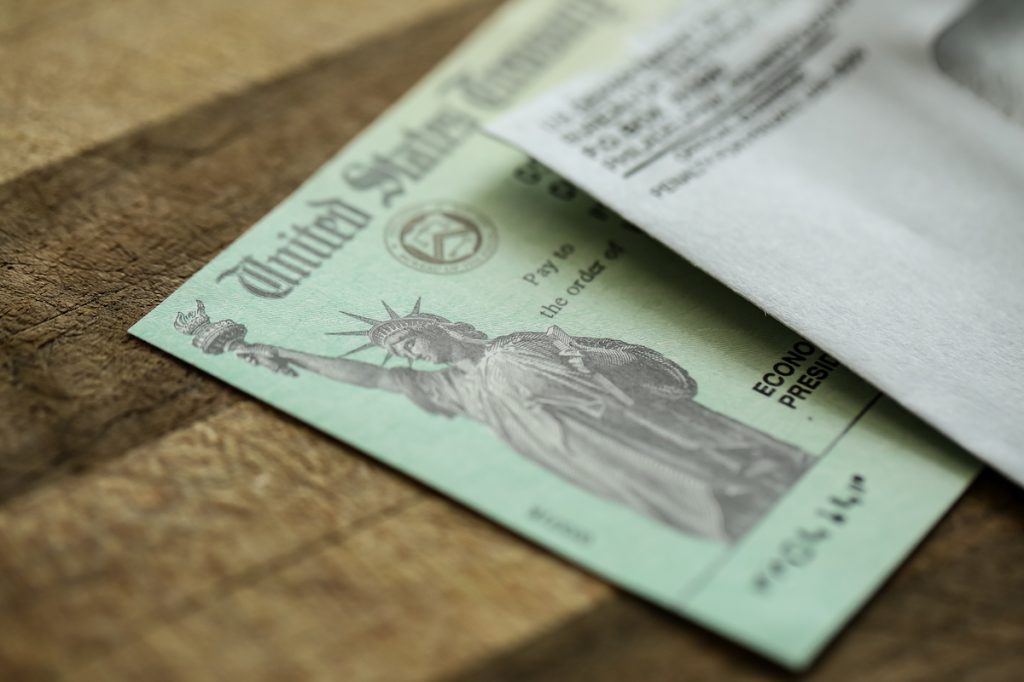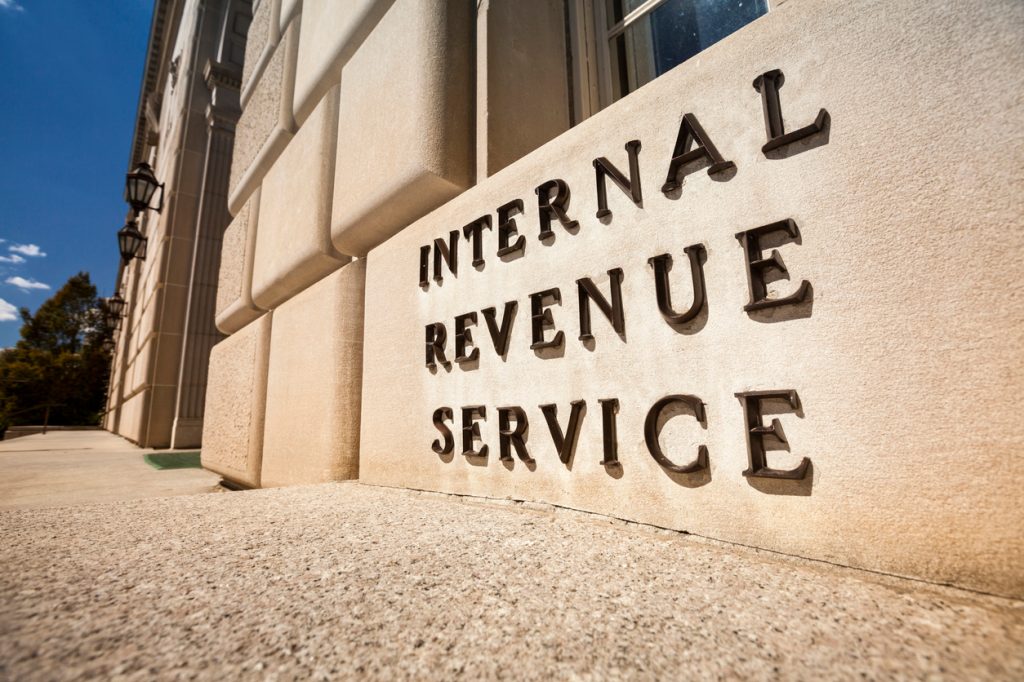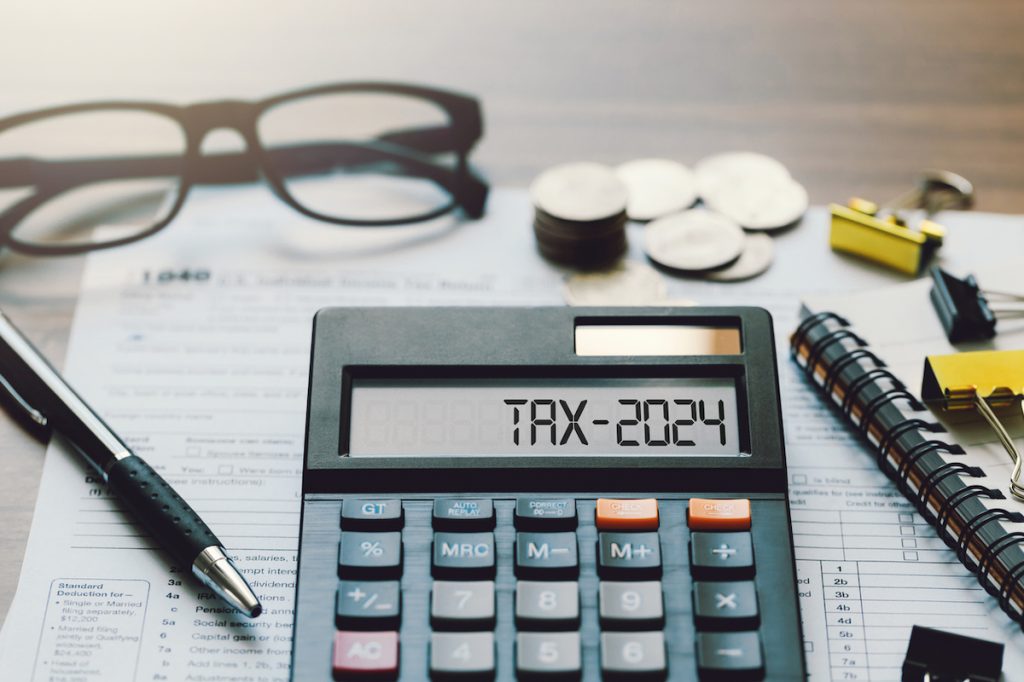IRS Issues Final Reminder for Claiming Stimulus Payment—Are You Eligible?
The tax agency says the deadline to take advantage of the benefit is approaching.

Even though it may seem straightforward, there are plenty of little ways in which your tax filing can become more complicated than usual in certain years. Whether it's a major life change or claiming a sizeable credit, the average taxpayer may not realize they've missed a significant update—especially if it was a one-time event or exceptional circumstance. Now, the IRS has issued one last reminder for claiming a stimulus payment credit ahead of the final deadline. Read on to see if you're eligible and what you need to do to secure it.
RELATED: IRS Issues New Alert on 5 Major Tax Changes You Need to Know Before Filing.
The Recovery Rebate Credit relates to stimulus checks issued during the COVID-19 pandemic.

The COVID-19 pandemic saw several drastic measures taken by the federal government to protect the public and help it recover from sudden changes. One of the more notable steps was issuing multiple stimulus payments, known as Economic Impact Payments, to citizens in 2020 and 2021, totaling as much as $1,200 for each qualifying adult in some cases, per the U.S. Department of the Treasury.
But while the assistance was meant to be broadly available to help make ends meet, not everyone received their payout. To handle this, the IRS enacted the Recovery Rebate Credit for those who didn't receive payments or got less than the total amount owed to them by the program.
RELATED: Filing Your Taxes Later Could Boost Your Refund—But the IRS Warns Against It.
Time is running out for those who haven't yet claimed the credit.

Even though it was enacted years ago, there are still some taxpayers who never claimed their share. Now, time is running out for those who haven't.
In a March 4 press release, the IRS warned that anyone who hasn't filed their 2020 taxes will soon be unable to claim the Recovery Rebate Credit on their filing. The agency says the deadline to do so is set for May 17, 2024—which is three years after the original deadline for 2020 taxes.
The agency explains that this is because taxpayers have the right to claim any refunds owed to them up to three years after a filing due date. They added that the recovery rebate for 2021 taxes has a deadline of April 15, 2025.
RELATED: Accountants Reveal "Surprise" Tax Errors That Cost You Big and How to Avoid Them.
Here's who's eligible to claim the Recovery Rebate Credit.

According to the IRS, most eligible people have already claimed the credit or ultimately received their owed payments. But those who were U.S. citizens or resident aliens in 2020 and 2021 and weren't listed as a dependent by another payer are eligible to apply if they "did not receive one or more Economic Impact Payments," even if they passed away in 2020 or later.
The agency explains that eligible taxpayers "must file a tax return first to claim a Recovery Rebate Credit, even if their income from a job, business or other source was minimal or non-existent." The press release warns that without filing, other potential refunds owed to taxpayers could vanish when the deadline hits.
The agency has recently made some other pandemic-related tax announcements.

While the Recovery Rebate Credit reminder may show that COVID-era policies are finally winding down, it's not the only pandemic-related announcement the IRS has made recently. On Dec. 19, 2023, the agency said it was providing $1 billion in relief for more than 4.7 million taxpayers who owed back taxes.
The IRS explained that shutdowns related to the pandemic led to many of its automatic reminders usually mailed out to taxpayers being suspended in 2022. As a result, many may not have been aware of accruing interest or failure-to-pay penalties they'd been issued promptly. The agency said the move would primarily go towards helping those who make less than $400,000 per year.
"As the IRS has been preparing to return to normal collection mailings, we have been concerned about taxpayers who haven't heard from us in a while suddenly getting a larger tax bill. The IRS should be looking out for taxpayers, and this penalty relief is a common-sense approach to help people in this situation," IRS Commissioner Danny Werfel said in a statement. "We are taking other steps to help taxpayers with past due bills, and we have options to help people struggling to pay."
Best Life offers the most up-to-date financial information from top experts and the latest news and research, but our content is not meant to be a substitute for professional guidance. When it comes to the money you're spending, saving, or investing, always consult your financial advisor directly.
- Source: U.S. Dept. of the Treasury: Economic Impact Payments
- Source: IRS: Recovery Rebate Credit
- Source: IRS: Time is running out: IRS encourages eligible non-filers in 2020 to claim their Recovery Rebate Credit before May 17 deadline
- Source: IRS: IRS helps taxpayers by providing penalty relief on nearly 5 million 2020 and 2021 tax returns; restart of collection notices in 2024 marks end of pandemic-related pause





















